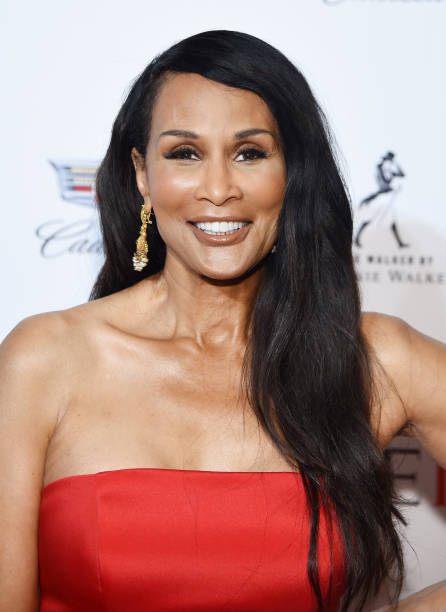
A lot is known about menopause, like the fact that once a woman reaches 45 to 55, “the change” is around the corner. However, other factors can cause women to experience menopause earlier than they typically would, which is what supermodel Beverly Johnson experienced after undergoing a hysterectomy.
Johnson was 47 years old when she began experiencing “full-blown menopause”. Although she fell in the age group of women beginning menopause, it wasn’t until after the hysterectomy that she began experiencing symptoms.
The 70-year-old, who began experiencing fibroids in her 30s, first underwent a myomectomy, which is a minimally invasive option that keeps the uterus intact. However, the fibroids grew back to the point that they were pushing on her uterus and causing her to menstruate every day for a year. As a result, Johnson became anemic.
This time around, her doctor recommended that she get a hysterectomy.
View this post on Instagram
Unexpected consequences
Johnson underwent the procedure in 1999 to stop the internal bleeding she was experiencing as a result of the uterine fibroids. The effect of the hysterectomy was something she wasn’t prepared for.
“It was a life-changing moment,” she says. “I went from my swinging forties to full-blown menopause and I was not prepared.”
“It was a major operation,” says Johnson. “I didn’t fully understand what the procedure entailed. The doctor didn’t explain and I thought menopause would come on gradually.”
Just two months after the procedure, she started experiencing those all too familiar symptoms.
RELATED: Fashion Icon, Beverly Johnson, Talks Work-Life Balance + Skin Secrets (VIDEO)
“My body changed,” Johnson tells PEOPLE. “You start gaining weight in the middle. And I was still modeling. I felt tired. I remember talking to older women and when they’d break out in a sweat, I’d say ‘What’s wrong? Are you okay?’ And the response was always ‘You’ll know about it soon enough.’ I never connected the two. Well, I was that woman now. You’re in the middle of a conversation with an attractive guy — I was single — and all of a sudden, there’s a mustache of sweat, and he’s saying ‘Are you okay?'”
The supermodel even began to notice a shift in her sex life. “You don’t have the hormones that keep you nice and moist in the areas you want to be nice and moist in,” she shares. “Mentally, you still have a sex drive but physically, there were changes. You’re moist in all the wrong places and that was a big shocker for me. There are all these unexpected consequences.”
Because menopause is something that isn’t often talked about, Johnson turned to her older female friends for support.
“There was no Google. My mom would say ‘It’s nothing. It will be over soon.’ She downplayed it but she downplays anything that is kind of uncomfortable,” she adds. “I got more helpful information from girlfriends than my own doctors,” she says. “As soon as you mention it to someone going through it, it’s the topic of conversation.”
View this post on Instagram
A new beginning
Although Johnson wasn’t prepared for menopause, she considers it a chapter that marked “a whole new beginning” because it allowed her to value her health in a new way. She’s also glad she’s able to spark conversation and hopefully encourage more Black women to advocate for themselves.
“We don’t know why African American women have an increased risk of fibroids and all the complications that come from that, and so for my African American sisters, it’s important to share information about our experience,” she says. “For all women, we’ve learned to advocate for ourselves. To ask your doctor. We have the power to say ‘I don’t understand.’ Something I didn’t do when I had the hysterectomy.”
She’s even been able to see progress with her daughter Anansa Sims’ birth. “When she was giving birth, because of the baby’s heart rate, they told her, they’re going to use suction to help take the baby out,” Johnson recalls in her PEOPLE interview. “And she said ‘Excuse me, you’re going to have to explain that to me.’ And she was stopping the whole process to make sure she understood. It’s a different world now.”
View this post on Instagram
“Advocating for ourselves, not only in health care, but in every part of your life, that’s a beautiful thing,” Johnson says.
The link between hysterectomies and menopause
It is important to know that a hysterectomy isn’t always necessary. The best treatment for fibroids is typically based on your age, the size and location of your fibroids, and whether or not you want children. However, sometimes a hysterectomy is needed to save your life, and restore your health and quality of life.
Depending on your condition, your doctor will determine which type of hysterectomy is right for you:
- Total Hysterectomy — Removal of your uterus and your cervix, but not your ovaries. This is the most common type of hysterectomy.
- Hysterectomy with Oophorectomy — Removal of your uterus and one or both of your ovaries.
- Hysterectomy with Salpingo-Oophorectomy — Removal of your uterus, one or both of your ovaries, and your fallopian tubes.
- Radical Hysterectomy — Removal of your uterus, cervix, the top portion of your vagina, most of the tissue that surrounds the cervix, and sometimes the pelvic lymph nodes.
- Supracervical Hysterectomy — Removal of your uterus, but not your cervix.
Getting a surgical removal of your ovaries, which produce estrogen, will cause you to go into menopause immediately. However, if your ovaries were not removed during a hysterectomy, you may temporarily experience hot flashes (medically known as vasomotor symptoms) and other menopausal symptoms, which will lessen as you heal.
There is no right or wrong when it comes to choosing the best method of treatment for fibroids, so remember to take your time and choose the option that is best for your health and meets where you are currently in your life. Your doctor is an extra source of support that can help you make an informed decision.









